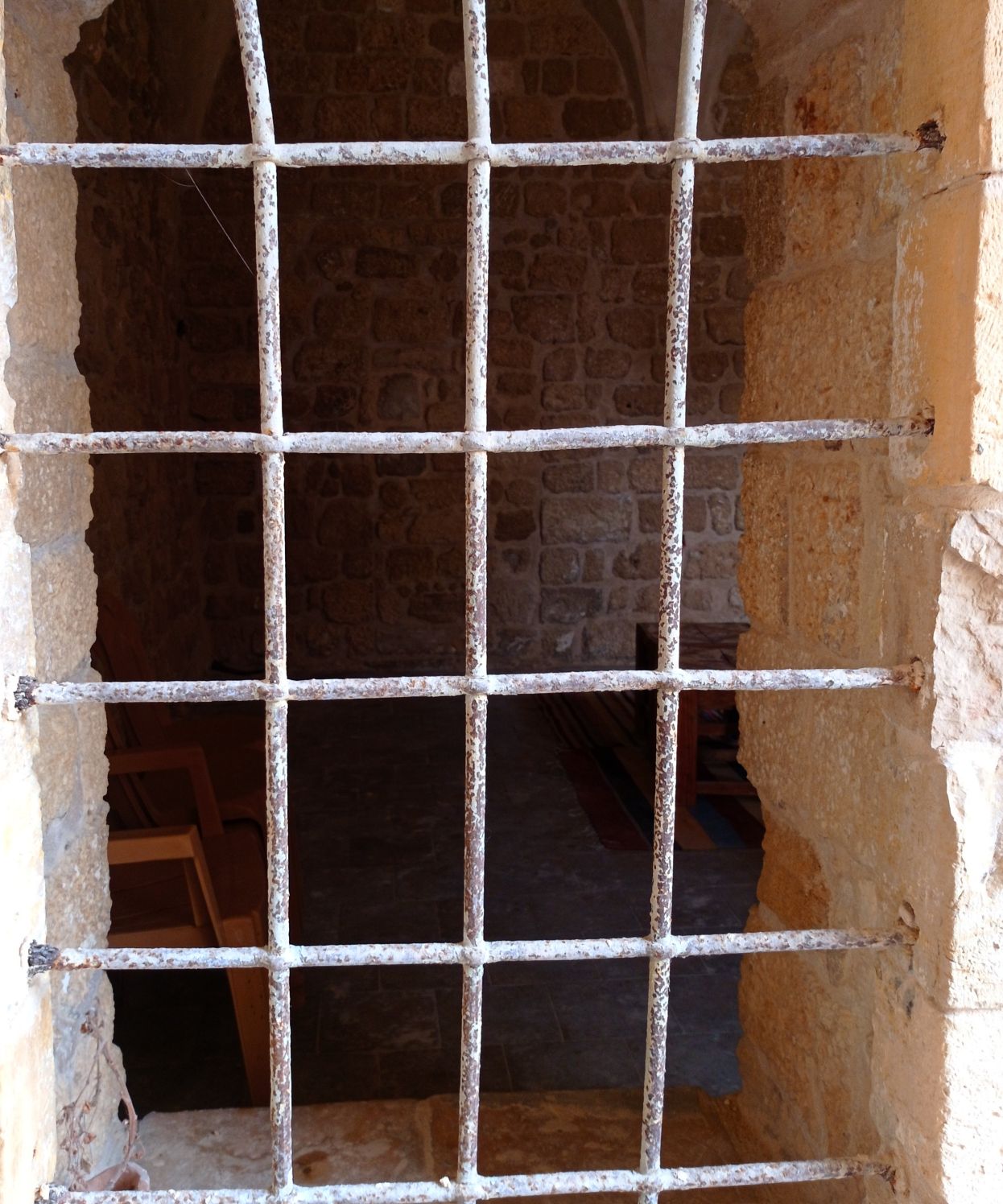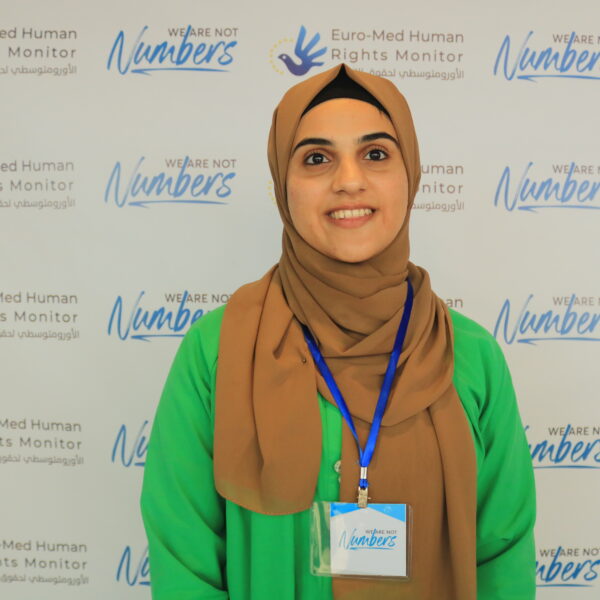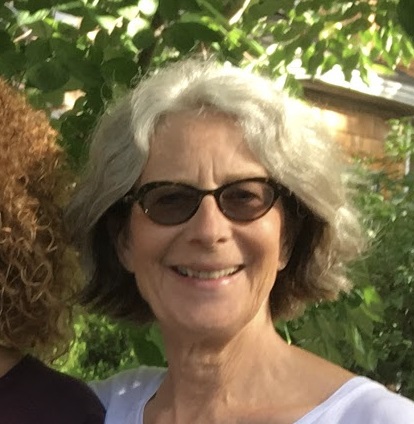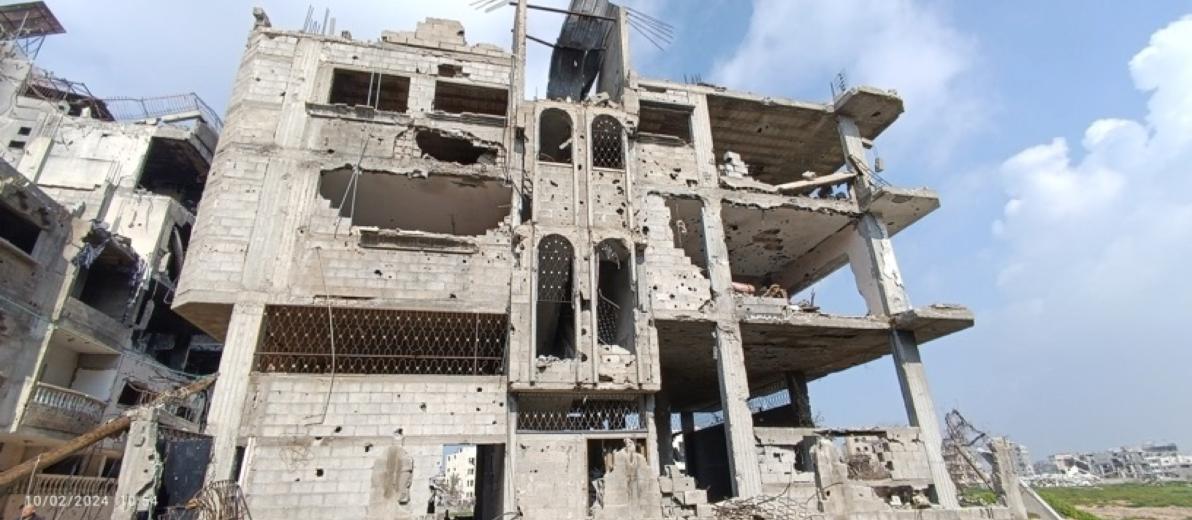
Sometimes I find myself likening Gazans to zombies, not in the strange Hollywood sense of a dead body being reanimated, but more in reverse: We carry on life’s functions but deep within a sense of being lifeless develops. We work, learn, eat, drink, socialize, and watch movies. But everything seems to lose its spirit.
I have lived under the Israeli blockade since 2006 ,when I was nine years old. This means I have lived most of my life under increasing restrictions. Once I read that if there is a bad smell and you get used to it over time, that means that parts of your cells have died. Here in Gaza since the blockade, we have grown accustomed to electricity outages and excessive travel restrictions.
We even have become used to the buzzing sound of the zenana—Israeli drone aircraft hovering over us and watching all the time. When we no longer notice its sound, it seems as if some of our cells must have died. We only notice it during wars as its sound intensifies.
Having grown accustomed to these things doesn’t mean I am normalizing them; but I am saying we are half-dead; we kind of stopped feeling these things.
Electricity outages
The memories of my childhood summer vacations are intertwined with frustration because of electricity. As a child and a teenager, the mornings that should have promised me joy and entertainment often failed me. Most of the days my mornings would be this: I wake up to find the electricity off telling me, “You can’t watch your favorite TV show.” Cellphones were a luxury I didn’t possess back then and even if I did, the absence of the internet due to the power outages wouldn’t have made it a replacement. In my childhood, my sources of joy were limited: either watching TV shows (when electricity was on) or playing with my niece, the only child in my family who is younger than me and close to my age. But I didn’t have the chance to see her much, and I wasn’t that type of child who enjoys playing alone with her dolls.
However, pain is not just about one’s complaints. When people around you complain about the same thing, it adds more hurt and spreads negativity, creating a gloomy atmosphere at home. It was so stressful seeing my family nagging and grumbling about the electricity outages for different reasons: cooking, studying, working, entertaining. I felt this negative energy around me.
Even during school days, my mornings remained cursed by electricity outages. I used to rise before the sun to find myself having to wash my face, get dressed for school, and have my breakfast in the dark. Getting ready for the day ahead with nothing but the dim light of a hand lamp cast a shadow of despair over the very start of the day. Why would a child greet the world with a heart so heavy? During those times, we didn’t possess the luxury of solar panels, a fate shared by almost all of the Gazans.
Now I am 26 years old and I find that some things remain unchanged. Mornings and nights continue to be cursed by the absence of power. One fortunate change is that, unlike most Gazans, we have solar panels. But even with this advantage, we live a life of limitations. The electricity comes on only six hours a day. When the electricity is off, it is true that we can turn on lights, have internet access, and charge our laptops and cellphones. But we don’t have the great pleasure of heating the water in the kettle for a comforting cup of tea, ironing our rumpled clothes, or heating the water for taking a shower in winter. We don’t have the pleasure of turning on the air conditioning when the temperature reaches 35 or 40°C in summer.
Other unfortunate Gazans live in the dark with no TV, internet, or fans for 22 hours a day. Can you imagine that? I remember one year my dad decided not to sacrifice meat for Eid Al-Adha, a festival for Muslims, because he feared that the big amount of meat that we would have to store in the fridge would go rotten because the fridges are off most of the time due to the absence of electricity.
Have we grown accustomed to electricity outages? Sometimes when I want to heat water for a cup of tea, for example, without thinking and as a habit, I use the cooker instead of the kettle even though the electricity is on. This makes me wonder how much of Gazan life is formed by limitations.
Travel restrictions
I have never received the necessary permissions to travel but sometimes I wonder if I were to travel abroad, would I be able to recover the joy and curiosity that I have lost? I feel as if I have grown accustomed to being half alive.
Gaza is an open-air prison because we live a limited life as if we are in prison but in a big space. When I was a child I dreamed of traveling all around the world. I dreamed of spending quality time on a ship in a boundless ocean. I was so naive that I have never imagined that these are very big dreams for Gazans, while traveling is taken for granted by some foreigners.
I dreamed of swimming at a clean beach instead of our polluted beaches. I dreamed of going hiking in a forest. For some people outside of Gaza all my dreams are not dreams; they are simply life. I am a person who is fond of nature. In Gaza, we have limited aspects of nature: we have the sky, the sun, and a few trees in rural areas. But we don’t have mountains; we don’t have forests; we don’t have rivers.
We have the Mediterranean Sea. But even this aspect of nature falls victim to the blockade’s effects. Because we don’t have enough treatment and drainage plants and due to the lack of electricity, sewage is thrown to the sea without treatment. And because Israel doesn’t permit us to extend long water pipes in the sea far from the shore, we throw the raw sewage through short pipes at the shore’s edge, causing 73% of the Gaza beach to be contaminated.
Forced to live virtually
Once an Italian man who came for a visit to Gaza told me that he doesn’t use Instagram or any other social media platforms because he is “more into real life.” However, I and most people in Gaza stand in contrast to him. We are “more into social media.” I try to live my dreams at least through virtual reality, and I see the world outside through my cell phone screen.
We almost don’t have anything interesting in life to not escape to social media. Social media is our coping mechanism. We escape from our reality. We enjoy the natural views of people posting outside Gaza. We live their adventures by looking at our screens. We defend our Palestinian cause through it. We derive hope from hopeful videos and reels sometimes.
All the above are reasons for being half alive, which affects our psychological state, dampening our creativity and overall well-being. Yet, though there are no signs of change for the better in the future, our belief in God makes many of us continue to hold onto hope and believe that the best is yet to come.










